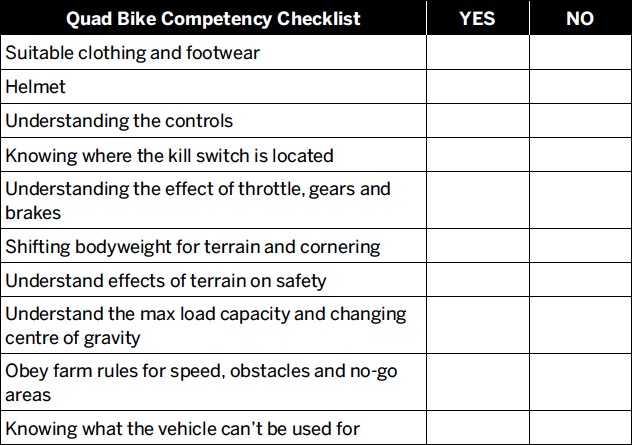Storm-damaged trees still causing havoc in Southland
Southland farmers are being urged to put safety first, following a spike in tip offs about risky handling of wind-damaged trees
Between 2009 and 2014 there were 241 workplace fatalities in New Zealand.
Sadly, farming was a major contributor -- 96 deaths (39.8%) during this period, nearly one third (26) involving quads. WorkSafe has farming in its sights, some say unfairly, some say about time.
The statistics for farming make grim reading and it is alarming to see that the four wheel workhorse plays a disproportionate part in the total. This may be brought about by the gung-ho way farmers treat these vehicles during their working days: e.g. “I need to pop down to the bottom paddock, or up onto the hill” so it’s cock the leg over, hit the gas, and get on with it.
Unfortunately, while quads create easy convenience they demand a degree of rider input born of experience, or rider training for beginners. No surprise that incidents occur at both ends of these spectrums – older riders suffering from complacency and newer riders from lack of experience. The Kiwi ‘she’ll be right’ attitude kicks in a lot of the time and unfortunately doesn’t always come off.
So, what must we do to bring these numbers down? Chiefly, ensure the machine – two wheeler, quad or a side-by-side – is the right one for the job and the property. What do we want to do with it? Move around the farm and check stock? Check stock and take a few bales to sheep up on a hill? Tow a 1.5 tonne bin of PKE out to dairy cows?
Each of these tasks needs a different type of machine, so do some homework, talk to others with similar needs, discuss their solutions and speak to dealers and manufacturers.
At the start of the season (perhaps timely because gypsy day isn’t far off) take the time to audit the abilities of your staff and yourself to use these vehicles – particularly quads. You might need to organise basic or refresher training to make sure everyone is up to speed. If so, be sure it contains all the key basics to ensure you and the team arrive back at base safely.
While the points made in the checklist (left) are aimed at users of quads, it is not unreasonable to apply them to any form of farm transport, even to the point of wearing a helmet while driving a side-by-side vehicle. We all set out thinking “it’s not going to happen to me”, but accidents can happen in the blink of an eye – turning too quickly to head off an errant ewe or entertaining a stray thought about visiting a bank manager later in the day.
Make sure you think about the journey before you set off from the farmyard, to increase the likelihood of getting back safely. Planning helps you reach the right result, and if all else fails remember the maxim “jumping out of an aeroplane for the first time without a parachute will probably result in not needing it a second time.”

Legal controls on the movement of fruits and vegetables are now in place in Auckland’s Mt Roskill suburb, says Biosecurity New Zealand Commissioner North Mike Inglis.
Arable growers worried that some weeds in their crops may have developed herbicide resistance can now get the suspected plants tested for free.
Fruit growers and exporters are worried following the discovery of a male Queensland fruit fly in Auckland this week.
Dairy prices have jumped in the overnight Global Dairy Trade (GDT) auction, breaking a five-month negative streak.
Alliance Group chief executive Willie Wiese is leaving the company after three years in the role.
A booklet produced in 2025 by the Rotoiti 15 trust, Department of Conservation and Scion – now part of the Bioeconomy Science Institute – aims to help people identify insect pests and diseases.
President Donald Trump’s decision to impose tariffs on imports into the US is doing good things for global trade, according…
Seen a giant cheese roll rolling along Southland’s roads?